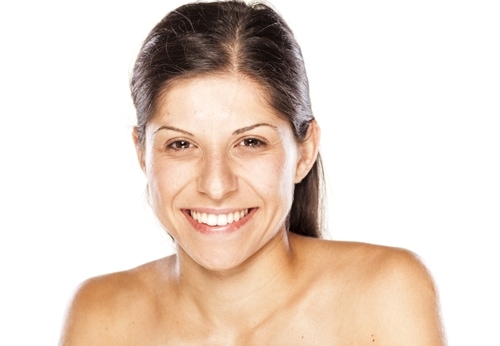A person’s sense of their physical appearance, usually in relation to others or in relation to a cultural ”ideal,” can shape their body image. It is also influenced by those around us, because families and friends relay positive and negative messages regarding our bodies to us throughout our lifetime. Images in the media can also project unrealistic and even dangerous standards of beauty than can have an impact on the way you look at yourself. Studies have shown that females in societies, where thinness is promoted as a positive standard of beauty, have higher rates of eating disorders and negative body images.
Every single person has a body image. We all have feelings about how we look, and it’s part of human nature. It’s also normal to like some parts of your body and dislike others, but body image also refers to how comfortable we feel in our bodies and how much control we feel.
What Is A Negative Body Image?
Individuals who report or have a negative body image may feel that their appearance does not measure up to what society, family, friends, and the media expect of them. They may feel uncomfortable and awkward with how they look, or ashamed, self-conscious, and anxious about their bodies.
How we evaluate our appearance can have a powerful impact on our development and our psychosocial experiences. It should come as no surprise that negative body image is one of the main precursors to disordered eating. The National Eating Disorders Association reports that 35% of “normal dieters” progress to pathological dieting and that 20-25% of those individuals develop eating disorders.
The following factors make some people more likely to develop a negative body image than others:
- Low self – esteem and/or depression and/or anxiety
- Age – Body image is frequently shaped during late childhood and adolescence, but body dissatisfaction can affect people of all ages and is as prevalent in midlife as young adulthood in women.
- Gender – Adolescent girls are more prone to body dissatisfaction than adolescent boys; however male body dissatisfaction is increasing.
- Personality traits – People with perfectionist tendencies, those who internalize standards of beauty, high achievers, and those who often compare themselves to others, are at higher risk of developing body dissatisfaction.
- Criticism – Individuals who receive outside criticism about appearance/weight, regardless of actual body type, have an increased risk of developing a negative body image.
- Friends and family who diet and express body image concerns – Role models who express body image concerns and demonstrate a fixation on weight loss can increase the likelihood of an individual developing body dissatisfaction regardless of their actual body type.
- Body size – In our weight-conscious society, having a larger body size increases the risk of body dissatisfaction.
How To Improve Your Body Image
First of all, recognize that everyone has an “off day” where they feel a bit awkward about their body. The key is to recognize and respect your appearance and learn to tell yourself positive and accepting things about your body instead. Using Cognitive Behavioral Language, “Catch It. Check It. Change It.”
It is important to realize that there is no right or wrong when it comes to your weight, shape, size, and appearance. Every single person is special and unique. Changing your actual appearance can be counterproductive, therefore it’s more important to improve your body image.
- Focus on your positive attributes, skills and talents can help you accept and appreciate your whole self
- Say positive things to yourself every day
- Avoid negative or berating self-talk
- Focus on appreciating and respecting what your body can do
- Set positive, health-focused goals rather than weight loss
- Avoid comparing yourself to others; instead, embrace what make you special
- Remember that many media images are unrealistic and represent a very small minority of the population
- Understand that your self-worth should not be linked to how you look
A positive body image happens when you can accept, appreciate and respect your body. Changing the way you think and talk to yourself can go a long way in preventing negative thoughts or feelings about your body image.
We Can Help
For more than 20 years, The Meadows Ranch has effectively and successfully treated women and girls with eating disorders. We define treatment success as:
- Restoration of health
- Reduction of eating disorder symptoms and behaviors
- Restoration of relationships with family and friends
- Renewed interest in school or work
- Returning to a productive, healthy and meaningful life
Through our bio-psycho-social-spiritual treatment approach and clinical excellence, patients find the strength to confront their problems, learn the tools and skills to overcome their disorder then enter recovery. Based on feedback from patients, families and professionals, the vast majority of our patients remain committed to a life of health, balance and purpose.
For additional information about the treatment of eating disorders, please call to speak to a Counselor at 866-390-5100 and we will contact you with the information you need.

